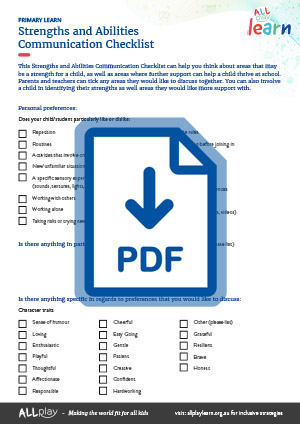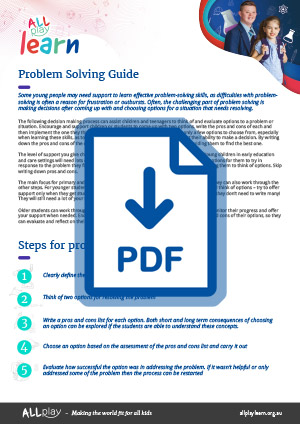
Social Skills
On this page:

About social functioning
Socialising with others requires many skills. These include being able to express thoughts or ideas, listen and understand what others say, show an interest in others, and share or take turns. Non-verbal behaviours are also important for socialising. These include using and understanding gestures, reading facial expressions, and knowing how close to stand to others and whether it is okay to touch someone.
Many things impact the way we interact with others. This includes personality traits (e.g. shy and quiet versus outgoing and energetic), mental health (e.g. feeling sad or low, compared with feeling happy and energised), ability to manage emotions (e.g. coping with frustration), and cognitive and communication skills (e.g. talking; using and understanding gestures; maintaining attention during a conversation, reading facial expressions; controlling impulses).
All students will take time to learn and acquire social skills, but some students process and understand social situations differently to others, and so may experience difficulties in making and keeping friends. Explicit teaching of social rules and skills, with lots of opportunities to practice, can help these students to acquire the skills they need to navigate social situations. It’s important to remember that when a student is not able to fully participate, it is usually because of the systems and structures in place, and a lack of understanding, not because of their abilities. This is why in addition to helping a specific student acquire social skills, approaches like peer mediation, in which peers are supported to acquire the skills they need to fully include another student, and supporting peers to understand different disabilities, can also help break down barriers to social participation. Some students with disabilities may have strong social skills, but experience exclusion by peers. When this is the case, consider using peer mediation and other approaches to exclusion and bullying, rather than targeting social skills.
While most of the social skills strategies to follow will be beneficial for all students, they may be particularly relevant for some specific groups of students. Use the tabs below to explore when and why evidence-based positive behaviour supports may be particularly helpful for some students.

Evidence-based strategies
Teach social skills
Model social skills
Encourage and acknowledge effort
Practise social skills
Set clear social rules
Encourage peer interaction
Stories

Best practice tips

Other considerations

Relevant resources
Visit our resources page for a range of resources that can help to create inclusive education environments for children with disabilities and developmental challenges. Some particularly relevant resources for children with social issues include our stories, and:



